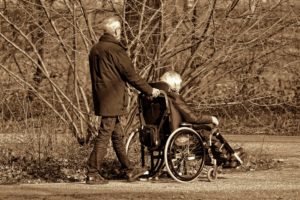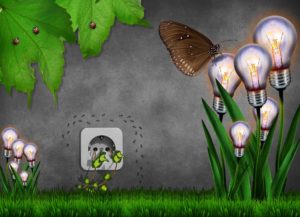The State of California has some of the most rigorous health care regulations in the country,
Take a look at this list of Top 10 Most Common Citations, provided by the California CCLD and apply these solutions to your community today!
- CPR Training:
Staff shall receive first aid training from persons qualified by such agencies as the American Red Cross. Ensure that at least one staff member who has cardiopulmonary resuscitation (CPR) training and first aid training is on duty and on the premises at all times. - Community Sanitation:
The facility shall be clean, safe, sanitary, and in good repair at all times. This can include resident rooms, so ensure that your housekeeping and care staff are regularly and adequately managing spills, messes, and smells. - Water Temperature:
This one may surprise you, but 23% of communities in California are cited for water temperature issues. “Hot water provided for the use of residents shall be maintained between 105 and 120 degrees F,” this can easily be adjusted by your maintenance staff. - Residents with Dementia:
Licensees who accept and retain residents with dementia shall ensure that each resident with dementia has an annual medical assessment and a reappraisal done at least annually. Best Practice is to have a resident re-assessed after any and every change in condition, including falls or following atypical behavioral issues. - Medication Storage:
Centrally stored medications shall be kept in a safe locked place that is not accessible to persons other than employees responsible for the supervision of the medication. It is not just enough to have a safe locked place, you must also ensure that your staff lock the medications every time when they are not in use. - Substances and Persons with Dementia:
The following items shall be made inaccessible to residents with dementia: Over-the-counter medication, nutritional supplements or vitamins, alcohol, cigarettes, and toxic substances such as certain plants, gardening supplies, cleaning supplies and disinfectants. Families often bring in these substances without realizing that they are prohibited. It is best practice to schedule weekly room checks to remove any unwanted materials. - Staff Training:
All staff who assist residents with personal activities of daily living shall receive at least ten hours of initial training within the first four weeks of employment and at least 4 hours annually thereafter. This deficiency is often cited simply because training was not properly recorded or stored. Have a well-defined organizational system to keep track of when your employees were trained and when re-training is due. - Medication Orders:
For any PRN medication for which a licensee provides assistance, there shall be a physician’s order on file and a label on the medication container. Specific information must be on both the order and the label. - Staffing Numbers:
Facility personnel shall at all times be sufficient in numbers, and competent to provide the services necessary to meet resident needs. Having on-call employees as well as a care-staffing agency on hand will ensure that you are never running the floor with unsafe staffing numbers. - Dangerous Chemicals and items:
Any item which could pose a danger to residents, including cleaning solutions, poisons, and other items, shall be made inaccessible to residents. Communities are often cited for leaving laundry detergent unlocked and out in the open.




